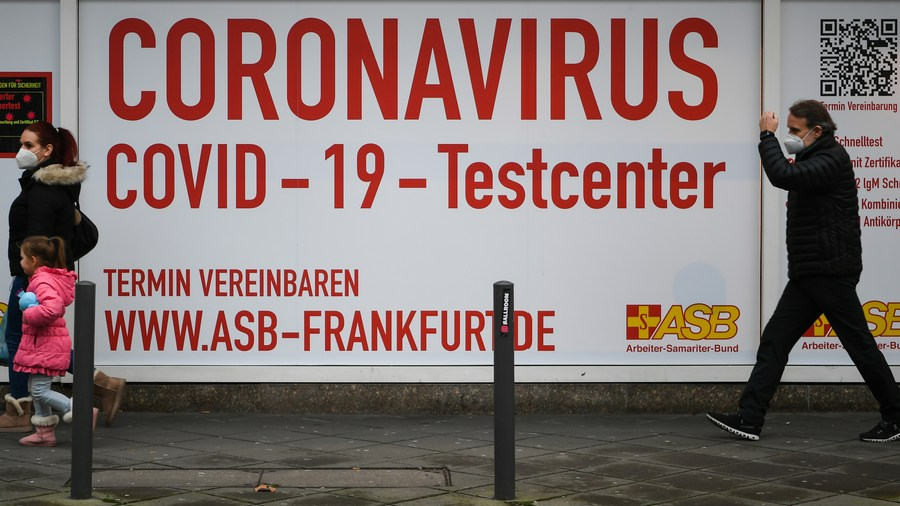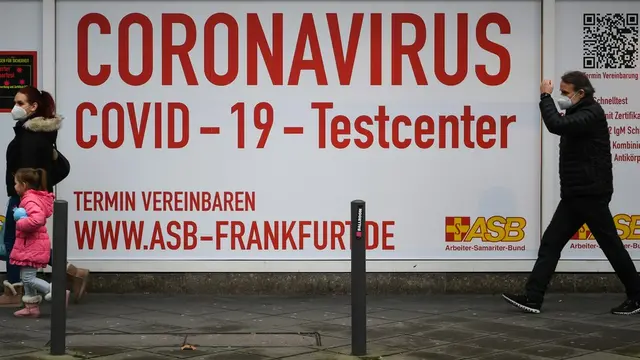
Pedestrians wearing facial masks walk outside a COVID-19 test center in Frankfurt, Germany, Jan. 20, 2021. /Xinhua
The COVID-19 situation in Germany has become "more dangerous" due to the spread of coronavirus variants, Lothar Wieler, president of the Robert Koch Institute (RKI), told journalists on Friday.
The RKI is "very concerned" about three "even more contagious variants of the virus" that have also reached Germany, Wieler said, stressing that variant cases are expected to continue to climb in the country.
Variant B117, which was first identified in the United Kingdom, is now the most widespread in Germany, Wieler said, citing a special report published by the RKI.
The B117 variant has been detected in 13 of Germany's 16 federal states and is responsible for slightly less than six percent of all infections, the report said.
"The situation is far from under control," Wieler said, adding that the spread had to be contained and the emergence of further variants had to be prevented.
Wieler reiterated that the German public should comply with the COVID-19 restrictions because the B117 variant is more contagious and could lead to more serious illness.
Germany reported 12,908 new COVID-19 cases on Friday, bringing the country's total since the outbreak of the pandemic to more than 2.26 million, according to the RKI. The country's death toll, meanwhile, rose 855 within a day to 60,597.
Chancellor Angela Merkel is scheduled to discuss the current lockdown in Germany with leaders of the federal states next week.
In view of the pending extension of the current lockdown, Minister of Health Jens Spahn warned at the press conference that "if we were to give these mutations the chance to spread, we would risk a renewed rise in infections."
Source(s): Xinhua News Agency
 简体中文
简体中文







